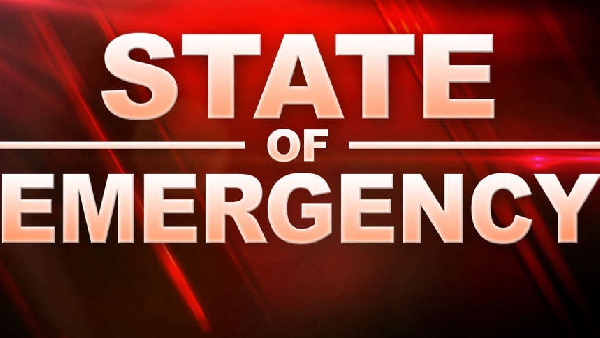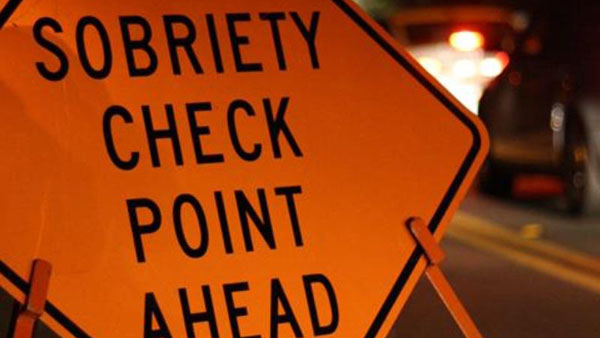Gov. Andy Beshear says he’s ready to consider executive action to make medical marijuana available for ailing Kentuckians if a legalization bill dies in the legislature

FRANKFORT, Ky. — If a bill legalizing medical marijuana doesn't reach his desk, Gov. Andy Beshear says he's ready to consider taking action himself to give some ailing Kentuckians access to medicinal cannabis.
The Democratic governor's comments Thursday reflected his growing frustration as the latest medical marijuana bill is currently stalled in the state Senate.
Asked if he could potentially issue an executive order making medical marijuana accessible if the bill dies, the governor told reporters: “We’re going to explore that.”
“It’s something that we will look at," he said. "Its time has certainly come.”
But the governor called on lawmakers to send him a bill that would allow Kentucky to join the majority of states that legalized medical marijuana.
The high-profile Kentucky measure cleared the Hous e on a 59-34 vote last month but it has made no headway in the Senate. Republicans have supermajorities in both chambers.
The bill would strictly regulate the use of cannabis for a list of eligible medical conditions. Beshear said the measure has overwhelming support among Kentuckians.
“You see people from every part of every spectrum that are in favor of this,” Beshear said.
The bill's prospects appear to be bleak in the Senate. Senate President Robert Stivers said Thursday that “it would be difficult” to pass the measure once lawmakers reconvene next week for the final two days of this year's 60-day session.
Instead, Stivers touted another pending bill that would create a cannabis research center at the University of Kentucky to study the use of cannabis to treat certain medical conditions.
“Most definitely, I think there is that desire to help individuals," Stivers said. "But with any drug, I think you need to have the full-blown studies.”
Those studies at the state's flagship university would shed more light on the medicinal and therapeutic values of marijuana, the Senate leader told reporters.
“That would give us the impetus to come back maybe within a year and say this is what marijuana could be used for or not be used for,” Stivers said.
The governor said the passage of legislation legalizing medical marijuana is already along overdue.
Under the current bill, doctors could prescribe medical cannabis for a specified list of conditions that include cancer, multiple sclerosis, chronic pain, epilepsy and chronic nausea.
The measure also includes “home rule” provisions. It would make medical cannabis legal statewide but county fiscal courts or commissions could vote to disallow it. However, cities in those counties would have the option to allow it.
Supporters say medical marijuana would ease the suffering of many Kentuckians.
Eric Crawford, a steadfast medical marijuana advocate in Kentucky, has told lawmakers that he uses medical marijuana as an alternative to opioids to deal with pain and muscle spasms from injuries he suffered in a vehicle crash more than two decades ago.
Opponents say they worry that Kentucky’s cannabis policy would become more lenient over the years if medical marijuana gets a legal foothold. That would worsen drug addiction woes, they said.
If medical cannabis becomes legal in Kentucky, four types of related ventures would result — cannabis farmers, processors, dispensaries and safety testers. Republican Rep. Jason Nemes, the bill’s lead sponsor, has stressed that it would be a home-state enterprise.
Meanwhile, the governor also made a late pitch Thursday for a bill that would legalize sports betting in Kentucky. That measure also passed the House but has languished in the Senate.
“You can drive across virtually every border in Kentucky and place a bet on your phone," Beshear said. "It’s time for Kentucky not to be last and to step up and to join the rest of the world.”
Stivers downplayed the bill's potential as a revenue generator for the state.
“If you think about a dollar, this wouldn’t even be a penny in receipts for what it may generate," he said. "So I’m kind of ambivalent towards it. As for entertainment value, it would be what I would call either an appetizer or dessert in a menu of options you would have here for entertainment.”
Tax revenue generated from sports betting would flow into the state public pension system. Sports wagering is expected to generate at least $22.5 million a year in revenue, its sponsors have said.

 Kentucky's Governor Declares State of Emergency Ahead of 4-Day Severe Weather Event With Possible Tornadoes
Kentucky's Governor Declares State of Emergency Ahead of 4-Day Severe Weather Event With Possible Tornadoes
 Indiana Attorney General combats contraband cell phones in prisons
Indiana Attorney General combats contraband cell phones in prisons
 Kentucky State Police Traffic Safety Checkpoint
Kentucky State Police Traffic Safety Checkpoint






